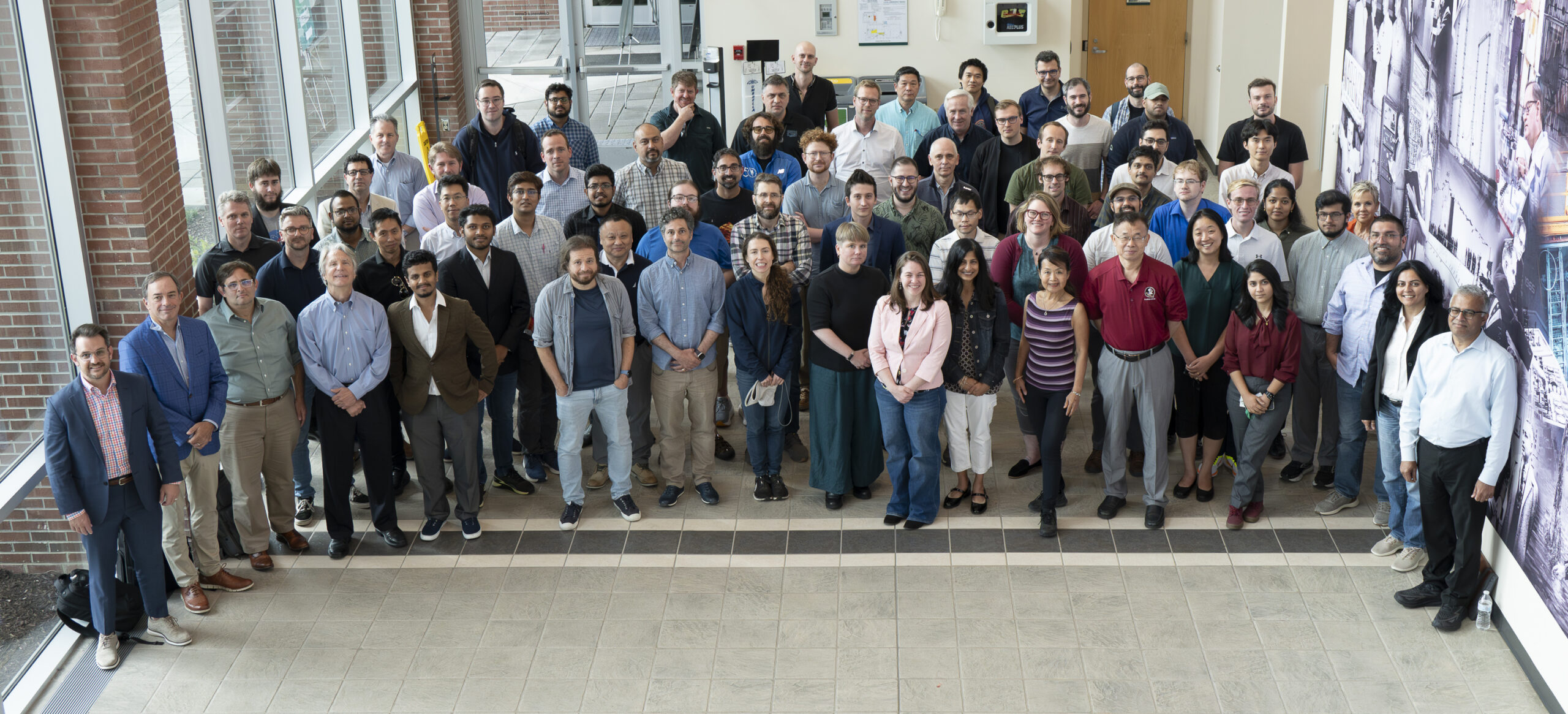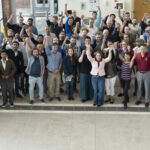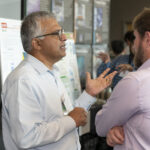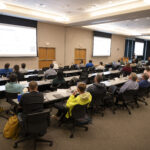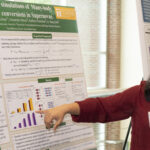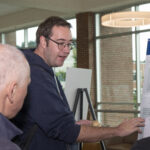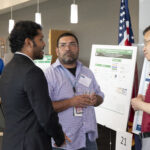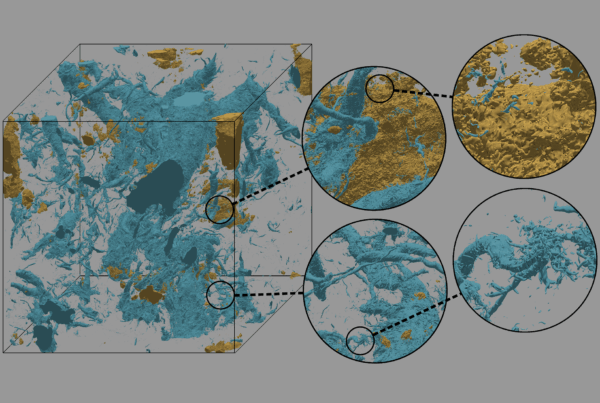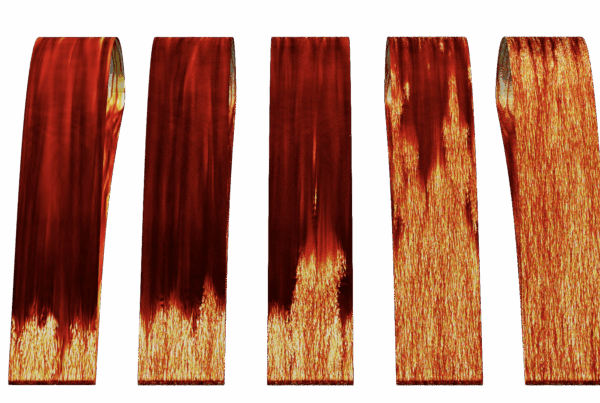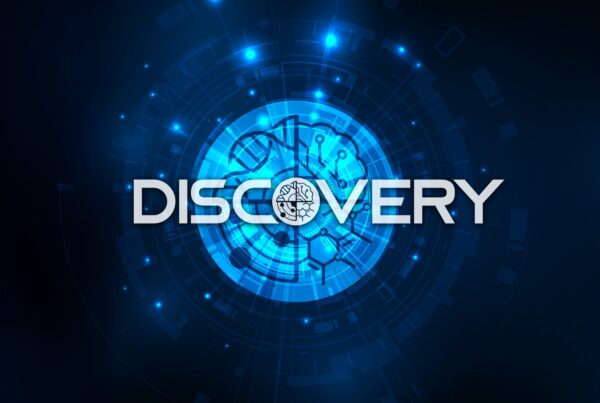The Quantum Computing User Forum, or QCUF, welcomed attendees for a dynamic event at the Department of Energy’s Oak Ridge National Laboratory from Aug. 12 to Aug. 15.
Hosted by the lab’s Quantum Computing Institute and the Oak Ridge Leadership Computing Facility, or OLCF, the fifth annual event was the largest yet, with over 120 registered attendees. Users spent the week discussing common practices in the development of applications, software and simulations for quantum computing devices and systems.
The forum featured results from an array of projects supported by the Quantum Computing User Program, or QCUP, which facilitates access for more than 400 users worldwide to utilize state-of-the-art quantum computing systems.
“Quantum computing hardware is improving every year,” said ORNL’s Travis Humble, QCUP director and one of the event organizers. “The users are learning how to keep up with these changes by talking directly with the vendors, and the forum provides them an audience for this. Our goal for the program is to share information across this community so that everyone learns what are the best ways to use quantum computers.”
Over the course of four days, attendees participated in panel discussions and hands-on workshops hosted by industry representatives from Quantinuum, IBM, IonQ and Amazon Web Services.
“This year, there’s a lot more discussion about integration with supercomputing,” event organizer and ORNL research scientist Claire Marvinney said. “How are we integrating these quantum resources with supercomputing resources and hybrid compute capabilities? I am excited to see how this topic will progress.”
QCUP began in 2017 and is funded by DOE’s Office of Science Advanced Scientific Computing Research program. Since then, it continues to grow worldwide.
As a user program, participants work closely with ORNL connections from a variety of scientific domains so they can be connected with quantum resources to support their research.
This year’s forum highlighted recent research results through workshops and keynote talks on the latest in quantum hardware, methods for mapping problems onto quantum computers and results from scaling up scientific applications of quantum computing. The forum also featured interactive workshops on topics such as the quantum computing service Amazon Braket and the quantum computing platform Quantinuum Nexxus, where users were able to get hands-on assistance from vendors.
“It was a good vibe,” Pavel Lougovski, principal researcher with Amazon Web Services, said. “It was interesting for us to talk with users, make connections and understand what problems they are facing right now.”
Day two of the event included a poster session where 36 posters were on display showing a variety of quantum computing projects. Users were able to vote for their favorite posters, and those researchers were awarded certificates on the final day of the forum.

A poster session during the evening on Aug. 13 featured 36 displays on various quantum computing topics. Credit: Kurt Weiss/ORNL, U.S. Dept. of Energy
Three winning posters earned the majority of votes during the poster session:
- “QFw: Quantum Framework with NWQ-Sim and TN-QVM” submitted by Srikar Chundury, North Carolina State University
- “Efficient Multidimensional Quantum Convolutional Classification” submitted by Esam El-Araby, University of Kansas
- “Quantum Simulations of Many-Body Neutrino Conversions in Supernovae” submitted by Zoha Laraib, University of Tennessee-Knoxville
“Through QCUP we are able to offer access to multiple quantum computing technologies through agreements with various vendors,” said ORNL IT project specialist and QCUF organizer Josh Cunningham. “On top of enabling this access, our users also benefit from access to our dedicated user assistance team, offering them technical support, training, documentation, and anything else they need to begin their work on these powerful resources.”
At the conclusion of the forum, many users said they enjoyed the overall organization of the event.
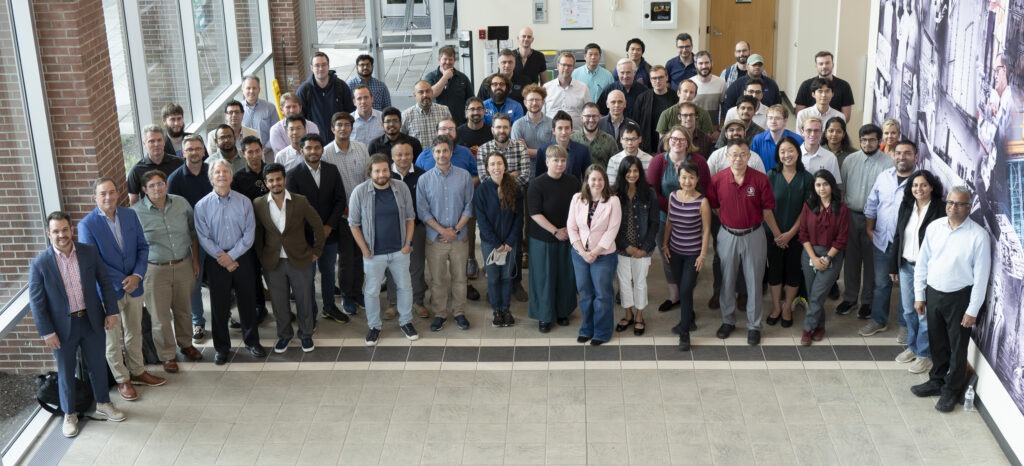
The fifth annual Quantum Computing User Forum hosted over 120 registered and featured research presentations, panel discussions, interactive workshops and an in-depth poster session. Credit: Kurt Weiss/ORNL, U.S. Dept. of Energy
“This forum has been an excellent opportunity to discuss topics with high-output users and vendor specialists,” said one attendee. “The organization of keynotes, workshops and user talks touch on the most important applications and techniques practiced in quantum computing.”
For more information about QCUP, visit https://docs.olcf.ornl.gov/quantum/quantum_access.html
Applications are accepted throughout the year. The OLCF is a DOE Office of Science user facility.
The Office of Science is working to address some of the most pressing challenges of our time. For more information, please visit https://energy.gov/science.


